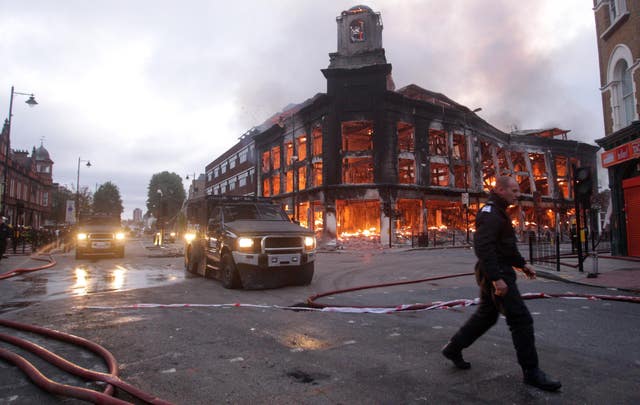‘Social ills’ led to the London riots – we ignore this at our peril
The root causes of the rioting – just like the root causes of violent crime today – are deeply complex and have deep-seated social and economic dimensions


As mayor of London, a key part of my job is acting as an advocate for our city – talking it up at every opportunity and constantly banging the drum for London across the country and around the world. It’s a task I’ve never struggled with because I love our city – and honestly believe it’s the greatest on earth.
London is a shining beacon for diversity and inclusion, a global hub for business and innovation, and a creative hotbed that is overflowing with energy and imagination. It’s somewhere that – as the last 18 months have shown – is blessed with remarkable resilience, endless reserves of courage and an irrepressible spirit.
But despite the positive story I can and do tell about London, we can’t ignore the huge challenges we face; or the difficulties and hardships many Londoners encounter on a daily basis. London, like all other major cities, has to contend with a host of issues – from the high cost of living and a chronic housing crisis, to the scourges of entrenched deprivation and violent crime.
As we mark ten years since the London riots, it’s clear that while some progress has been made, we still have much further to go to address the social ills that exist and that were key to giving rise to the chaos and disorder of a decade ago.
As a Londoner, it was utterly heartbreaking to watch the riots unfold. Cars and shops engulfed in flames, family businesses burned to the ground and police fighting running battles with looters in the streets. Those images created an atmosphere of fear that hung like a dark cloud over our capital for weeks.
Much of what we saw was brazen criminality – and I’m clear that there can never be any excuse or justification for those appalling scenes. We must condemn the behaviour of those involved and it is right many faced the full force of the law.
But if we want to avoid a repeat of similar incidents in future, we must continue to make a real and concerted effort to understand, and address the underlying conditions behind the rioting – from a breakdown in trust and communication between the police and our communities, to widespread alienation, poverty, a lack of opportunities and a sense of hopelessness among our young people.
The root causes of the rioting – just like the root causes of violent crime today – are deeply complex and have deep-seated social and economic dimensions.
Unfortunately, just as it became apparent how desperate our communities were for sustained investment, and our young people for greater opportunities, the coalition government ushered in a decade of austerity. Their deep cuts, which hit minority and working-class communities the hardest, resulted in the closure of youth clubs across our city, as well as impacting policing, Early Years support, probation, mental health and social services.
In London, we’re still living with the legacy and consequences of those cuts. We’re trying to fill the gaps and I believe we have made genuine progress in improving the prospects and outlook for our young people, but if we’re honest there’s still a lot more to do.
That’s why we’ve already invested tens of millions of pounds in employment programmes and positive opportunities that are helping more than 100,000 young Londoners improve their circumstances, including those most at risk of getting sucked into a life of gangs, exploitation and violence. We’ve also launched London’s biggest regeneration fund which has so far invested more than £75m into 138 schemes in our city.
In addition to that, we’ve established England’s first Violence Reduction Unit, which is working with communities and other stakeholders, to prevent young people from turning to violent crime. And we’ve developed an action plan to improve trust and confidence in the Metropolitan Police, in consultation with our black and minority communities.
We have a long way to go to alleviate the social conditions that help to explain the unacceptable levels of violent crime in our city and around the country today. But in London, we’re not shying away from this challenge, we’re meeting it head on – making it our mission to tackle the structural inequalities and injustices that have disfigured our society and scarred the life chances of our young people for too long.
We’re putting young Londoners at the centre of our recovery from this pandemic, investing in their futures and striving to live up to our values of equality, justice and inclusion – because ultimately this is how we will deliver the fairer, safer, more prosperous city all Londoners want and deserve.

Join our commenting forum
Join thought-provoking conversations, follow other Independent readers and see their replies